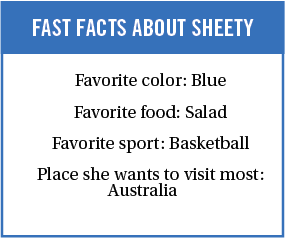Many of us have probably heard of the tumultuous relationship between Israel and Palestine, but few have probably heard of the new faculty member that has taken this animosity head-on in her daily work.

(Submitted Photo / Alia Sheety)
Dr. Alia Sheety, associate professor of education, has come from the Graduate School of the International Institute for Restorative Practices and has dealt with peer mediation between Israeli and Palestinian students.
“It had two folds. I could see it was possible to create an environment where students from both groups could come and talk,” Sheety said.
“But at the same time, it was hard because there was a lot of conflict, especially with all the suicide bombings in Israel creating tension.”
Sheety is also passionate about her role in restorative practice, and how she helps others through it.
“Restorative practice is basically when you do things with people, they are more engaged and have more positive reactions,” Sheety said. “There are two perspectives, one reactive and one proactive. Proactive is most important as an educator because you help build a strong community. The more we put into proactive, the less we need to invest in reactive.”
One of the most interesting things she explained was a graph depicting the relationship between expectation and support, a topic she also stressed the importance of due to its connection to restorative practice. The graph showed how if there is a high expectation and support level of someone, you get restorative practice. It also depicted how if you get high expectation and low support, you are doing things to people, and if you get low expectation but high support, you are instead doing things for them.
As an educator, Sheety is motivated by students and their successes.
“Teaching and seeing students grow and getting their feedback is important,” Sheety said. “I believe they should be challenged and go out of their comfort zone.”

Through her work, Sheety helps others and strives to make a difference, not just at Cabrini, but in the world through her knowledge of social justice and restorative practice.
“I want a better place to live in,” Sheety said. “The social justice here at Cabrini motivates me to work for that.”


